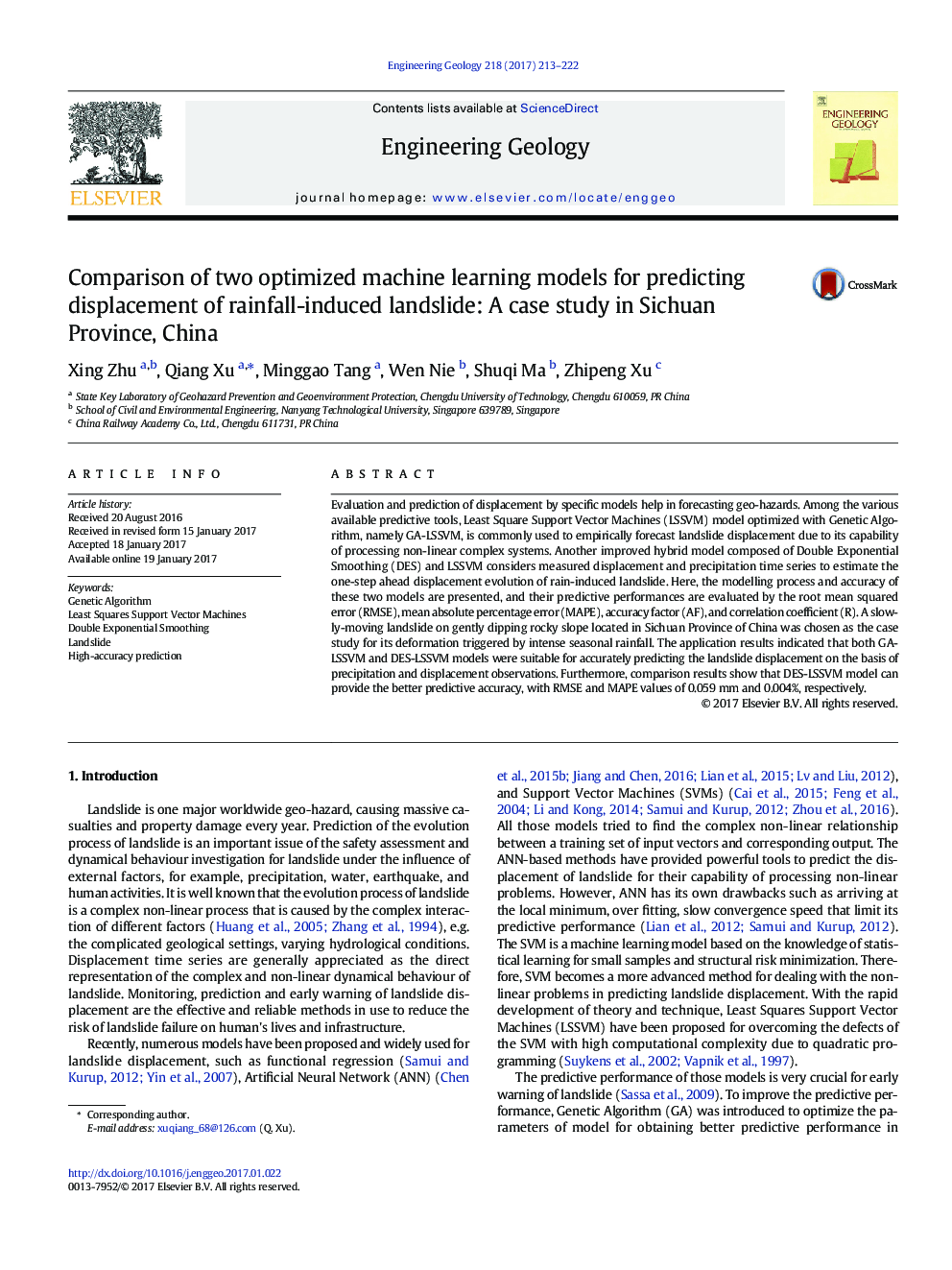| Article ID | Journal | Published Year | Pages | File Type |
|---|---|---|---|---|
| 5787720 | Engineering Geology | 2017 | 10 Pages |
Abstract
Evaluation and prediction of displacement by specific models help in forecasting geo-hazards. Among the various available predictive tools, Least Square Support Vector Machines (LSSVM) model optimized with Genetic Algorithm, namely GA-LSSVM, is commonly used to empirically forecast landslide displacement due to its capability of processing non-linear complex systems. Another improved hybrid model composed of Double Exponential Smoothing (DES) and LSSVM considers measured displacement and precipitation time series to estimate the one-step ahead displacement evolution of rain-induced landslide. Here, the modelling process and accuracy of these two models are presented, and their predictive performances are evaluated by the root mean squared error (RMSE), mean absolute percentage error (MAPE), accuracy factor (AF), and correlation coefficient (R). A slowly-moving landslide on gently dipping rocky slope located in Sichuan Province of China was chosen as the case study for its deformation triggered by intense seasonal rainfall. The application results indicated that both GA-LSSVM and DES-LSSVM models were suitable for accurately predicting the landslide displacement on the basis of precipitation and displacement observations. Furthermore, comparison results show that DES-LSSVM model can provide the better predictive accuracy, with RMSE and MAPE values of 0.059Â mm and 0.004%, respectively.
Keywords
Related Topics
Physical Sciences and Engineering
Earth and Planetary Sciences
Geotechnical Engineering and Engineering Geology
Authors
Xing Zhu, Qiang Xu, Minggao Tang, Wen Nie, Shuqi Ma, Zhipeng Xu,
